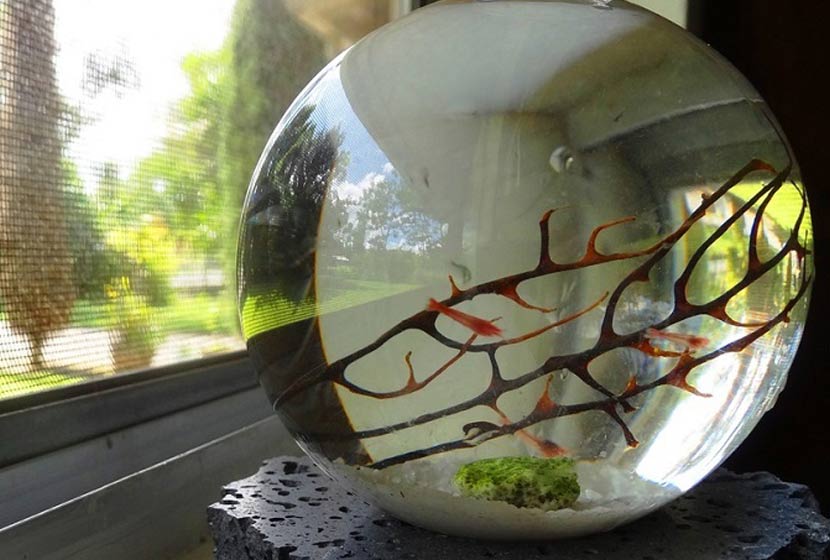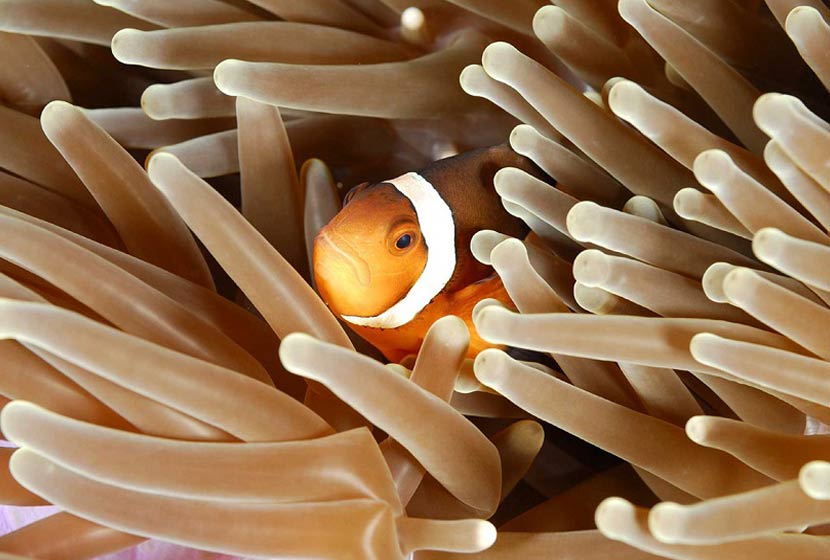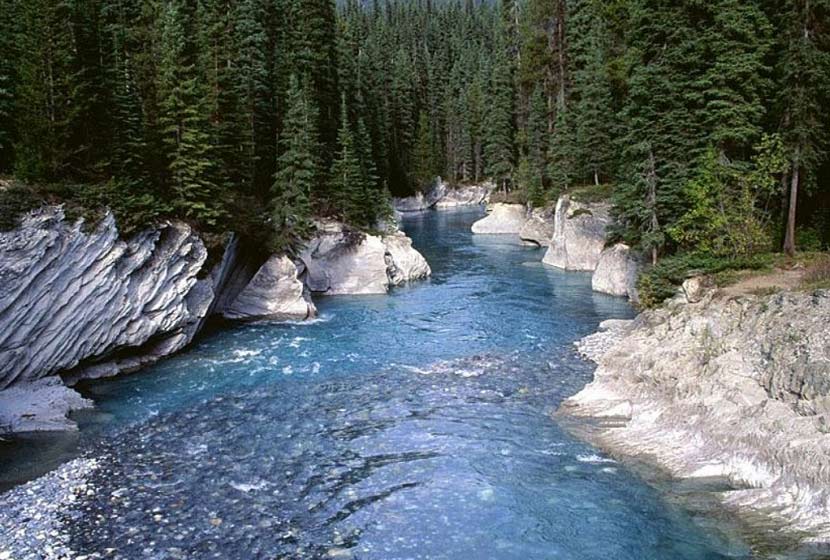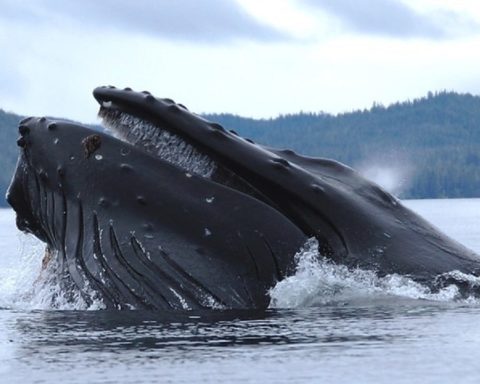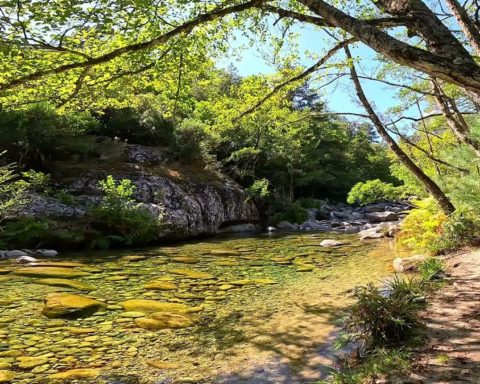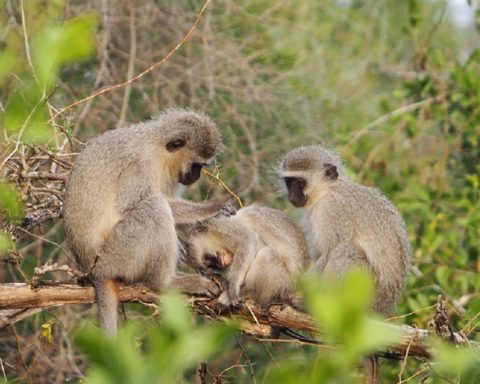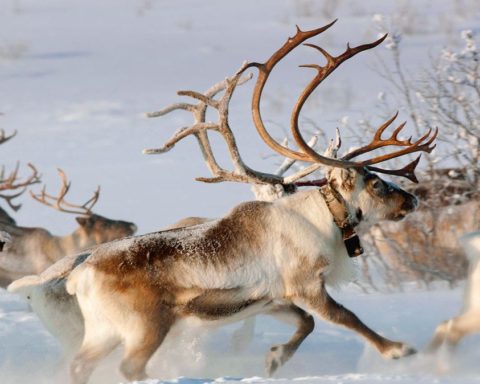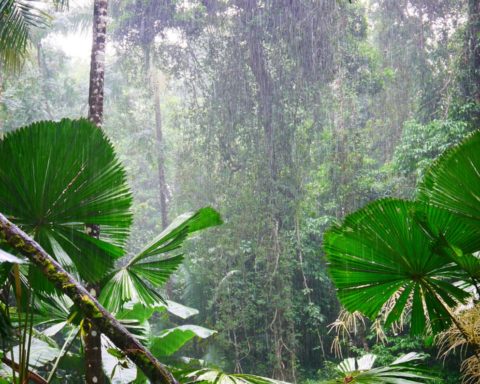While Ségolène Royal presented on Friday, December 5 the state of the environment report 2014 in France, a Declaration on Biosphere Ethics was signed today in Montreal. A common vision shared by Montreal, Quebec City and Paris to take back in hand ethical rules for the protection of the biosphere.
Official representatives of the National Museum of Natural History in Paris, the Museums of Civilization in Quebec City and Space for Life met today, Wednesday, December 10, 2014, to sign a Declaration on Biosphere Ethics. The event took place at the Biodiversity Centre located at the Montreal Botanical Garden. This commitment responds to an ethical, scientific and cultural issue: the need to build a relationship between humans and the other components of the biosphere based on shared values in order to conserve the Earth's natural and cultural diversity.
"I am proud that our Space for Life is among these three signatories committed to a common vision and shining at the international level. This consolidates Montréal's important role and leadership in the great challenge of conserving and protecting the Earth's biodiversity. Space for Life aims to bring humans closer to nature and it is a magnificent achievement! »declared Ms. Manon Gauthier, member of the Executive Committee and responsible for culture, heritage, design, Space for Life and the status of women at the City of Montréal.
"What kind of world will we bequeath to our children and grandchildren? This is the purpose of this statement for Space for Life. Together, with our employees, visitors and our colleagues in Quebec City and France, we wish to act to conserve and enhance the biological and cultural diversity of our planet". says Mr. Charles-Mathieu Brunelle, Director of Space for Life.
For his part, the Director General of the Museums of Civilization, Michel Côté, points out that "The need to seek to understand the world and to share our knowledge with all citizens. As the sociologist and philosopher Edgar Morin reminds us, humanity and the Earth are not abstract notions, they are communities of destiny". These principles of exchange were concretized in particular during the collaborative process between intercultural teams leading to the realization of the exhibition. This is our story. First Nations and Inuit of the 21st Century . The same type of citizen consultation will be applied for the development of the exhibition Québec in the World.
"I am pleased that, under the Canada-France Agreement for Museums, Space for Life, the Museums of Civilization and our Museum have worked together to put the Biosphere Ethics Initiative into practice. This collaborative approach, which has mobilized a large number of staff on both sides of the Atlantic representing the diversity of our businesses, has now led to the launch of a process that will have a profound impact on the day-to-day implementation of our missions. This is the meaning of our common commitment". says Mr. Thomas Grenon, Director General of the Muséum national d'Histoire naturelle in Paris.
The signing of this declaration is the culmination of fruitful meetings and constructive workshops that took place over two years thanks to the Canada-France Agreement: a consensus on the values and principles that will guide the actions of the signatories. This process of reflection is also part of the dynamics of the Biosphere Ethics Initiative, launched in 2010 by the International Union for Conservation of Nature (IUCN).
By recognizing values of existence for all living beings, values of memory that situate us in time and space, and values of the future that guarantee the sustainability of the biosphere, the three institutions share a common vision. This vision is reflected in the awareness and accountability of their partners, employees and audiences with regard to geological, biological and cultural diversity through the implementation of their missions of research and expertise in the natural and human sciences, collection building and conservation, teaching and knowledge sharing.
The three institutions are also measuring the threats to the future of this diversity: overfishing, climate change, intensive agricultural activities, but also air and water quality, natural resources in the face of growing demand for goods and services, exposure to risks and nuisances, etc... Consequently, they have a moral and intellectual responsibility towards societies and are committed to promoting a culture of nature, underpinned by scientific knowledge and ethical reflection, itself based on respect for all living beings.
At the crossroads of Earth and Life Sciences, the National Museum of Natural History in Paris has been devoted daily - and for nearly 400 years - to nature and its relationship with mankind. Rich in history and at the heart of current events, the Museum also works for the future through its 12 sites, multiple professions and its five missions (research, enrichment and conservation of collections, teaching, expertise and dissemination of knowledge) in order to understand and preserve nature.
Beyond immediate information and preconceived ideas, the Museums of Civilization play the role of decoders. They analyze, examine, differentiate to better reveal what is essential. As institutions of reference, and through their five components, they continue to progress not only through their own work, but also through the discoveries, experiences and achievements of other cultural institutions here and elsewhere.
Espace pour la vie brings together the Botanical Garden, the Biodôme, the Insectarium and the Rio Tinto Alcan Planetarium on the same site. These four prestigious City of Montreal institutions form the largest natural science complex in Canada. Together, they are initiating a bold, creative and urban movement that is rethinking the link between humans and nature and cultivating a new way of life.

